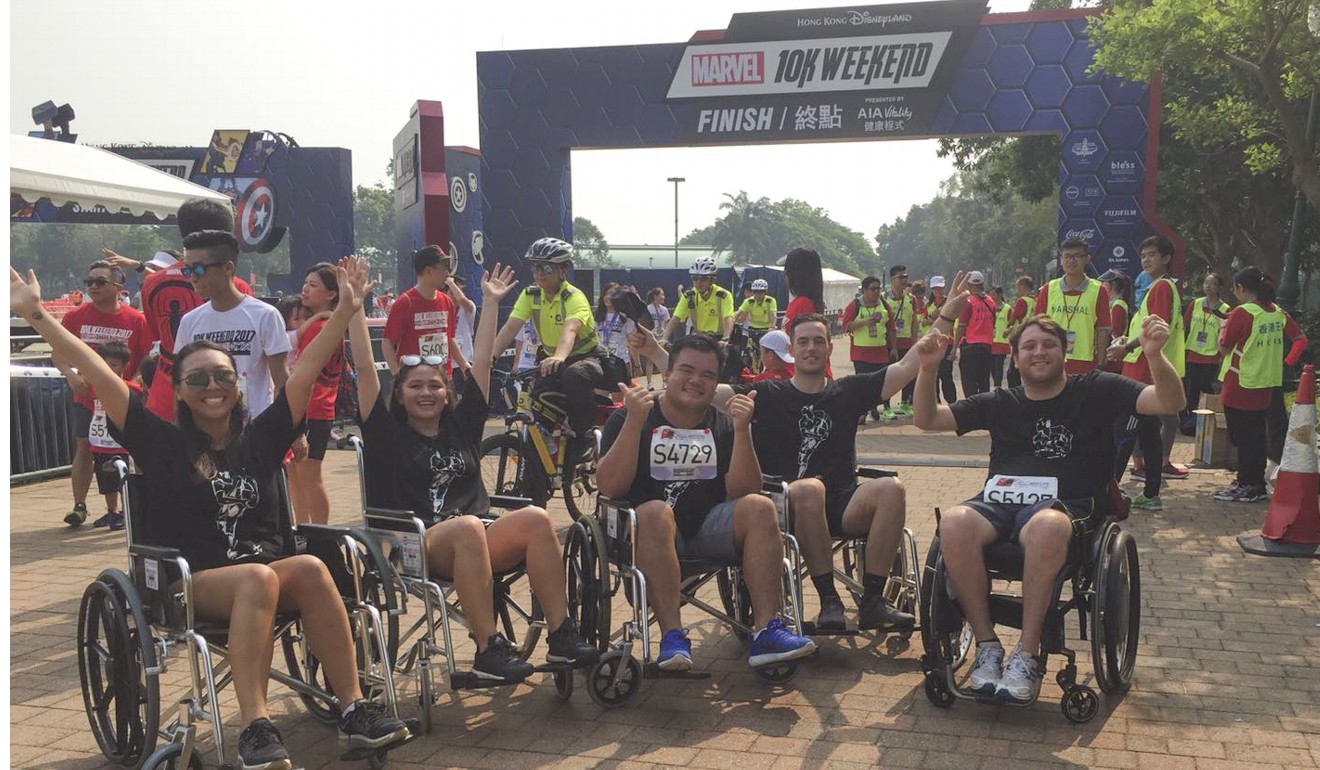
Ban tackling in rugby, heading in football – in fact, why not just ban sport altogether to keep our precious kids in a ‘safe space’?
Yes, sport can be dangerous and children can get hurt, sometimes seriously – but the benefits far outweigh the risks
The boy, then eight, broke an eye socket when he was kicked in the face and his mother wanted HK$223,000 in compensation.
Absolute nonsense, anybody who’s played football would reply, but in a city often seemingly clueless about sport, a daft judgment from a daft judge might not have surprised.
Well done then to judge Winnie Tsui Wan-wah, who said it would be “against the common sense of any ordinary person who plays soccer” that kids should have to wear helmets or goggles to play, the mother’s suggestion.
You do wonder about mum’s motivation, especially since it apparently took her two years to decide only some cash could finally heal her little angel.
But even if she only wanted to “ensure the safety” of other kids, it still speaks to a strange thread in the zeitgeist of putting “safety” – in body and in mind – above all else.
A few days before that case was dismissed, an opinion piece in the British Medical Journal urged a total ban on tackling and other “harmful contact” in schools rugby. The government had to “ensure the safety of children,” pleaded professor Allyson Pollock, the ultimate worried mum.

She admits that her decade-long campaign to effectively get rid of schools rugby was prompted by an injury her boy suffered playing for his team. She has written a book on the topic and regularly features in the British press writing articles with headlines designed to send overprotective mums into paroxysms, such as “Why NO mother should let her son play rugby”.
She is right to say that rugby can be dangerous – the case of Ben Kende, paralysed in a match for Hong Kong under-20s, is well-known to everyone in the local rugby community – and of course we should aim to ensure the highest possible safety standards.

But banning tackling? Come on. Heart disease is the number one killer of males in the UK, so let’s encourage less physical activity? It’s a strange stance for a ‘health expert’ to take.
“The continual claims made by Pollock are not based on like-for-like injury statistics and her extreme and alarmist conclusions are simply not supported by the data,” said World Rugby as it wearily dismissed her latest claims, but eventually some well-meaning idiot in government might pay attention.
Now there is a nascent movement to ban heading the ball in soccer, with Republic of Ireland striker Kevin Doyle retiring at 34 after complaining of headaches.
Ireland assistant manager Roy Keane might have been a bit more sympathetic to Doyle, but was spot on with his characteristically blunt assessment.
“I’m sure there is [a need for more research], that’s ongoing. But if you’re worried about the physical side of any sport, you’re wary of it, then play chess.
“It’s part of the game, whether it be hurling, football, American football, the rugby lads, it’s part of the game.
“When you cross that line, there is an element of risk involved. I don’t think it would make a difference to the players playing now. When you cross that line, there’s a chance that you might get a knock. They’re the risks you take.”

Of course we shouldn’t take potential risks lightly – nobody wants to follow the NFL’s example, which for decades has positively encouraged its athletes to destroy their brains for TV ratings.
The wish to eliminate danger from our children’s lives comes from a good place, but like the ‘safe spaces’ and ‘trigger warnings’ turning a generation of university students into snowflakes unable to handle a different opinion, it does far more harm than good.
The benefits of sport – teamwork, fitness, determination, grit, sacrifice, hard work – far outweigh the risks. “Broken bones will heal but being a p***y is a lifetime sentence,” as the American comedian Adam Carolla says – again, the language could be more genteel, but it’s a philosophy some, especially in Hong Kong, could do with following.
Finally, this is my last column, as I’m moving on after nearly seven years with the Post. As we wait with bated breath for the revolutionary sporting policies new chief executive Carrie Lam Cheng Yuet-ngor will no doubt unveil in her maiden policy address next week, I’d like to thank all the readers for their feedback – as well as the various local administrators and athletes fighting what is often an uphill battle to promote sport in Hong Kong.

